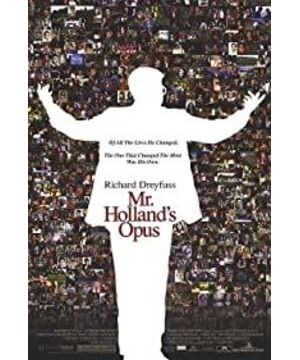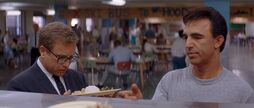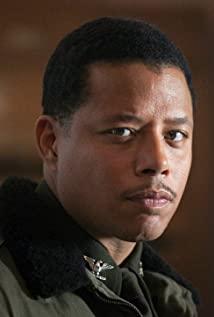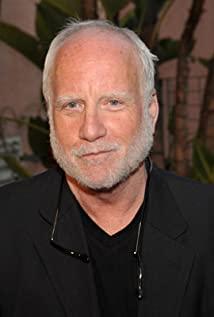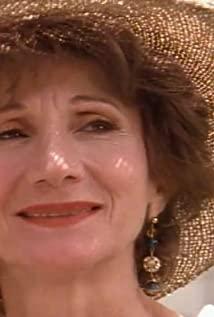To be honest, I didn't feel much at first when I watched this movie. It's complete, whether it's the plot or the rhythm, the soundtrack or the actors. It is like a perfectly performing student, meticulously interpreting its themes: love and dedication, art and responsibility. In this era of outrageous pursuits, after watching too many similar movies, I watched it carefully, but couldn't enjoy it more, I could guess every step of the plot, it was so boring and bland.
Until I found out that it was a 1995 movie, I suddenly felt a little funny, and had a sense of absurdity that I mistook my master for my apprentice. We are all too easy to make mistakes, intentionally or unintentionally pulling works from different eras into the present, and judge them aloofly.
What was my first impression of watching this movie?
I think Mr. Holland is too selfish. He selfishly cherished too much hope before his son was born. Instead, he let the family bear the gap of the loss of this hope.
I think Mr. Holland's wife is too pitiful. Everyone in the world remembers that Mr. Holland gave up his composition career, but no one regrets her photography career. She can obviously support her family temporarily through her works.
I overdrafted the exhaustion of married life, and further believed that getting married and raising children is the biggest risk investment in life. People who have loved each other so much will experience spiritual derailment and unknown painful costs.
I resent that love is just another kind of empowerment, and the inspiration of a person's life is just a flash of fireworks.
I badly expected Mr. Holland and Rowena to go away, but it's the American themes of the '90s, and they're full, moving, and neat.
Fortunately, this is the American theme of the 1990s, and they are forever settled, always full of hope on the ruins.
Somewhere along the way, a part of our thinking has been transformed into the Lord Henry of Wilde's writings, standing aloof, watching from the sidelines, and speaking sarcastically. Or, the lower-level Dorian Gray, let his thoughts fall into the quagmire of other people's logic and become a vassal of public opinion discourse symbols. From then on, the eyes are full of superficial label paper, and if they meet the conditions, they can't wait to stick them hard for others.
Endless criticism, insatiability and unhappiness are endless cycles that turn faster and faster.
Does perfection really exist in the world?
Why use the truth of a character's negative emotions to root out all of him?
Can I be a perfect person without having a mental derailment even once? Can I hold back my temper with the people closest to me and not act rashly? Can I resist the temptation to run away from all the troubles and the dream, and choose a kiss to wave away the last possibility of my life? Can I muster up the courage to sincerely apologize to my child? Can I give and persevere without hesitation when I am not sure if what I am doing is both effective and worthwhile?
Yes, "Life is Beautiful because of You" intersperses the plot with music, combined with the background of the times, it talks about music without distinction, about art, about education, about responsibility, about growth, about transformation, about anti-war, about friendship, and about friendship. The love that understands each other, the family who disregard the past, the regrets of the past, and the meaning of life and ideals are not in the distance but in the present.
But that doesn't even matter anymore, the important thing is, thank goodness, I reconciled with myself, maybe not because of the movie itself, but it more or less made me understand that thinking at least a little deeper than before is qualified to go judge.
Happiness and contentment are actually quite simple. Whatever the meaning of dreams can never be utopian; whatever the meaning of life can never be nihilistic. Go ahead, even if you don't love it at first.
View more about Mr. Holland's Opus reviews


